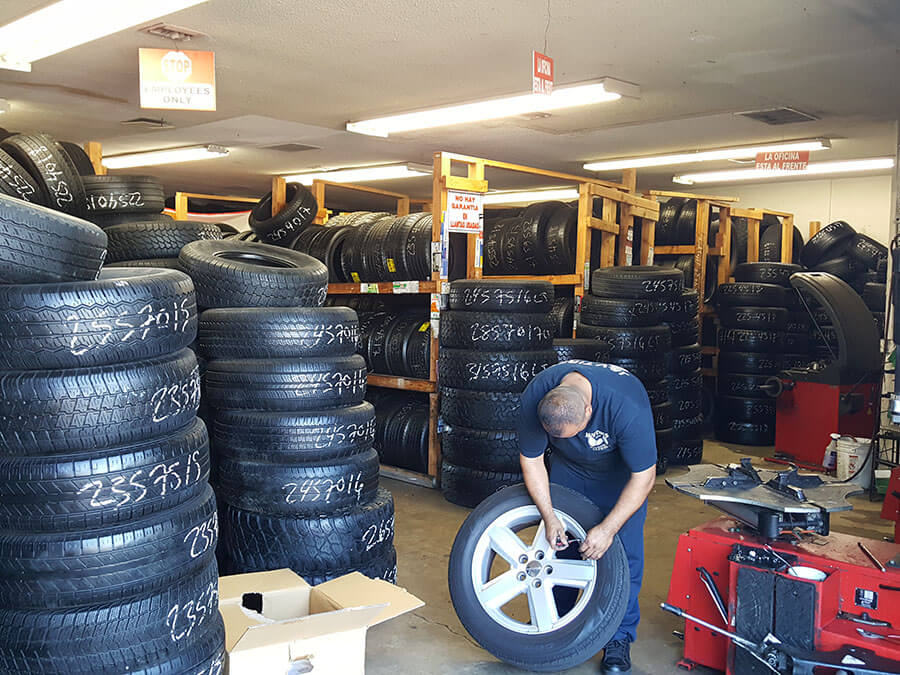Best Bargains on Discount Tires Morris IL: High Quality Tires at Affordable Prices
Best Bargains on Discount Tires Morris IL: High Quality Tires at Affordable Prices
Blog Article
Tire Service: The Effect of Climate Condition
When it concerns making certain optimal efficiency and safety when driving, recognizing the impact of weather on tire service is essential. From scorching warm to icy roadways, each weather aspect can dramatically influence tire functionality and general driving experience. By diving right into the effects of varying weather on tires, drivers can acquire useful understandings that might enhance their car's performance and durability. In this conversation, we will certainly discover the intricate partnership in between weather and tire service, dropping light on the relevance of weather-specific tire upkeep practices and considerations.
Warm and Tire Performance
When subjected to high temperatures, tires experience changes in performance that can significantly affect automobile security and handling. The warm generated from prolonged driving or heat problems triggers the tire rubber to soften, resulting in reduced step life and raised wear. As the rubber comes to be softer, the tire's hold when traveling diminishes, influencing stopping distances and total grip. In extreme cases, too much warm can even create tire blowouts, positioning a severe safety and security danger to the car and its occupants.
In addition, heats can speed up the process of tire aging, triggering the rubber to deteriorate faster. This can result in cracks, bulges, and various other types of damages that compromise the architectural stability of the tire. To minimize the impacts of warmth on tire performance, motorists should regularly inspect their tire stress, rotate tires to make sure also wear, and check for any indications of damages. In addition, using tires particularly created to hold up against high temperatures can assist keep optimum performance and security when traveling.
Winter Results
Cold climate problems can have a significant influence on tire performance and safety. As temperatures drop, tire rubber can set, leading to decreased grip on icy or snow-covered roadways. In cool climate, tires might likewise lose atmospheric pressure much more rapidly, which can influence taking care of and fuel efficiency. Additionally, cool temperature levels can create tire sidewalls to tense, boosting the danger of damage from fractures or various other road risks.
To alleviate the effects of cold climate on tires, it is vital to on a regular basis inspect tire pressure and inflate them to the maker's suggested degrees. Utilizing winter season or all-season tires designed for cool weather condition problems can likewise improve grip and grip on icy or snowy roadways - discount tires morris il. Appropriate tire maintenance, consisting of regular assessments for wear and damage, ends up being much more crucial throughout colder months to make certain optimal efficiency and safety
Rainy Issues Influence
Tires with worn-out footsteps are a lot more prone to hydroplaning, click here for more info where a layer of water builds up in between the tire and the road surface area, leading to loss of traction. To battle this, motorists ought to routinely evaluate their tires for appropriate tread deepness and think about spending in tires particularly made for wet problems.

Snow and Tire Security
Snow-covered roads position one-of-a-kind challenges for motorists, emphasizing the value of correct tire selection and upkeep. When driving in snowy problems, having the right tires can make a considerable distinction in safety and performance. visit the website Winter months tires are developed with special rubber compounds and step patterns to offer far better grip on snow and ice compared to all-season tires. The deeper treads and sipes of winter months tires help grip the road much better, lowering the risk of sliding and slipping.
In addition to using winter season tires, it is vital to guarantee they are effectively blown up. Winter can cause tire stress to go down, influencing grip and handling (mopar tire service specials). Frequently inspecting and preserving the appropriate tire pressure is important for optimal performance in snowy conditions

Weather-Related Tire Upkeep
Weather-related tire upkeep includes a range of techniques intended at making sure optimum tire feature and durability in different climate scenarios. One essential aspect of weather-related tire upkeep is tire pressure regulation. Evaluating tire walk on a regular basis and replacing tires when tread wear gets to a certain deepness is important for keeping traction and stability in negative weather condition.
Conclusion
In final thought, weather conditions have a significant effect on tire performance and security (morris tire and alignment). From warmth affecting tire pressure and use to cool weather condition lowering traction, it is important to think about the climate when preserving and using tires.
In this discussion, we will check out the complex partnership in between weather condition problems and tire solution, losing light on the relevance of weather-specific tire upkeep techniques and considerations.

Report this page